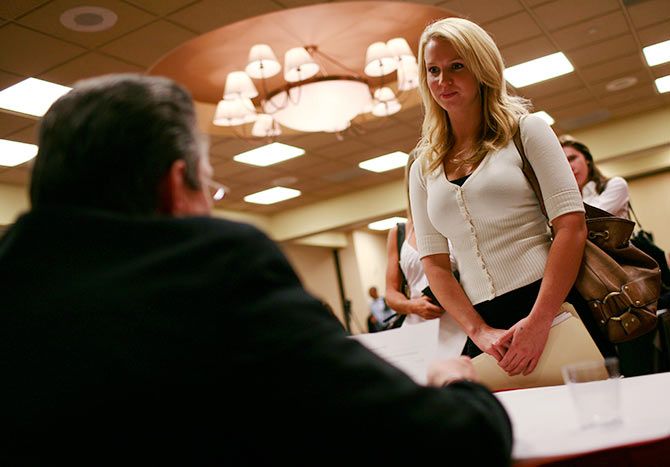In any interview, the first impression really matters.
Read on to know how you can leave a positive impression on your prospective employer.

The personal interview is one of the most challenging and important component of the recruitment and selection process.
How you conduct yourself through the interview will help determine whether you are a right fit for the organisation you've applied to.
Here are some tips and tricks to be successful in a job interview:
1.The first impression is most important
The good old adage is very true that the first impression is always the best impression.
Please enter the interview room with a smile and pause near the chair meant for you.
Better to sit down only after you have been told to do so and greet them appropriately based on the time of the day such as good morning and such.
Please ensure maximum eye contact as this is first sign of confidence that you can show to them.
Keep your file or folder or portfolio on your lap and NOT on the table.
Do check out in advance about the dress code usually followed in the company and dress appropriately.
Ensure that you reach the interview venue well in time .
2. Listen carefully
The most important point to note is that you must listen to the question carefully and then begin with your response.
Do not interrupt the interviewer and lose eye contact with the questioner.
Answers should be concise and clear and should incorporate practical examples and experiences whenever possible.
You may ensure maximum eye contact with the panelist who posed the question but do also ensure some eye contact with the other panelists off and on.
In case you don't know the answer, apologise for the same with a smile.
Do remember that very often your answer provides the basis for the next question.
Keep a small writing pad and a pen handy and use to explain a point if necessary .
3. Be enthusiastic!
Your enthusiasm and keenness to get the job that you have applied for should be visible during the interview.
Any sign of indifference, lack of enthusiasm, restlessness in answering questions and arrogance go against you.
In fact your positive approach, pleasant disposition and politeness can go along way in building a good rapport with the interviews.
Let us remember that the panel is also evaluating your attitudes, values and behaviour; besides your knowledge and skills .
4. Preparation for the interview
It is rightly said that if you fail to prepare, then prepare to fail.
Please ensure that you read enough about the company and its activities.
You need to also know enough about the role that you have applied for and the position.
Do collect some information about the industry segment too in.
Brush up all the basics in your area of specialisation so that your domain knowledge is up-to-date.
Prepare over a week so that you have enough time to collect and digest the information.
Last minute reading the night before in a great hurry will leave you more confused and anxious.
Prepare your interview folder and keep important relevant documents with you in a proper sequence to show it to the panel .
5. The importance of punctuality
Come what may, don't be late!
Arrive 15 minutes before, feel comfortable with the place, freshen up, have a sip of water and relax.
Traffic jams, a sudden downpour, trains running late are all part of day to day life and are NOT acceptable as excuses!
Settle down in the interview room, skim through some magazines or company literature if available and await your turn in a relaxed manner.
Being punctual ensures that you get time to settle down and don't end up in the interview room looking hassled , out of breath or with a crumpled look .
6. How to end the interview
The interview is the most commonly used tool to assess the candidate as it allows face to face interaction and gives an opportunity to the job seeker to present his/her credentials.
Most interview panels are friendly and allow the candidate to express themselves comfortably.
In case you are allowed to ask a question, keep one or two questions ready which are related to the job or the company per se.
Exit the interview room after thanking the panel and shut the door gently behind you.
Subsequently the company chooses the right candidate and not necessarily the best.
Rejection should not dishearten you.
Do remember that the outcome of an interview is important but what is more important is the healthy interaction.
Such experiences contribute largely to enhancing your career over a period of time.
Lead image used for representational purposes only. Image: Robert Galbraith/Reuters
The author Prof RSS Mani is vice president-Institutional Development, ITM Group of Institutions.










